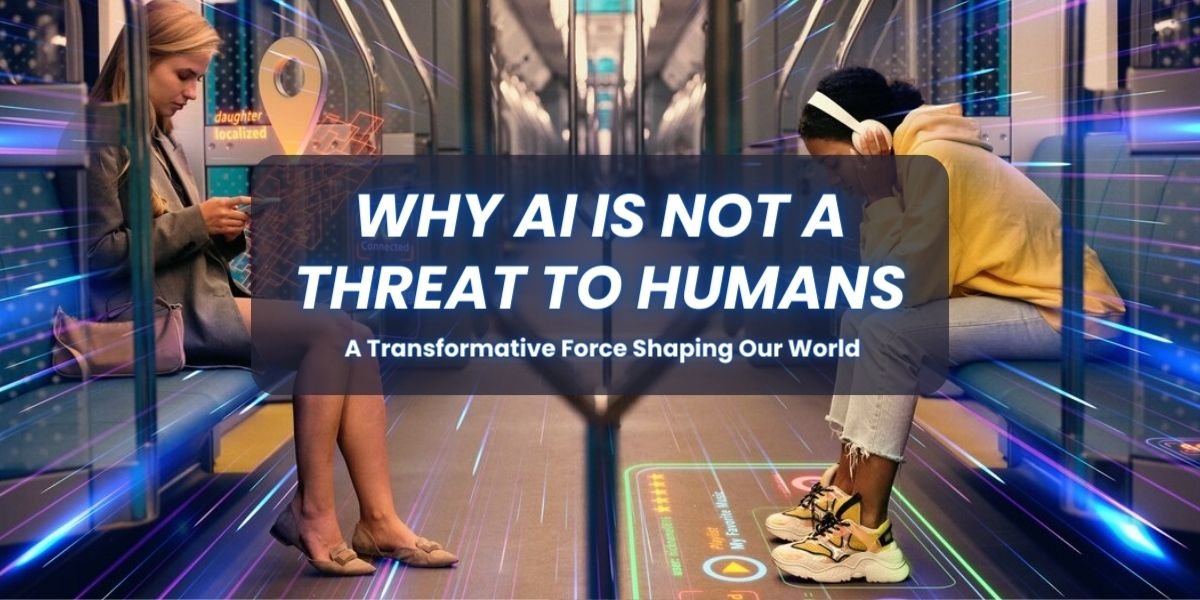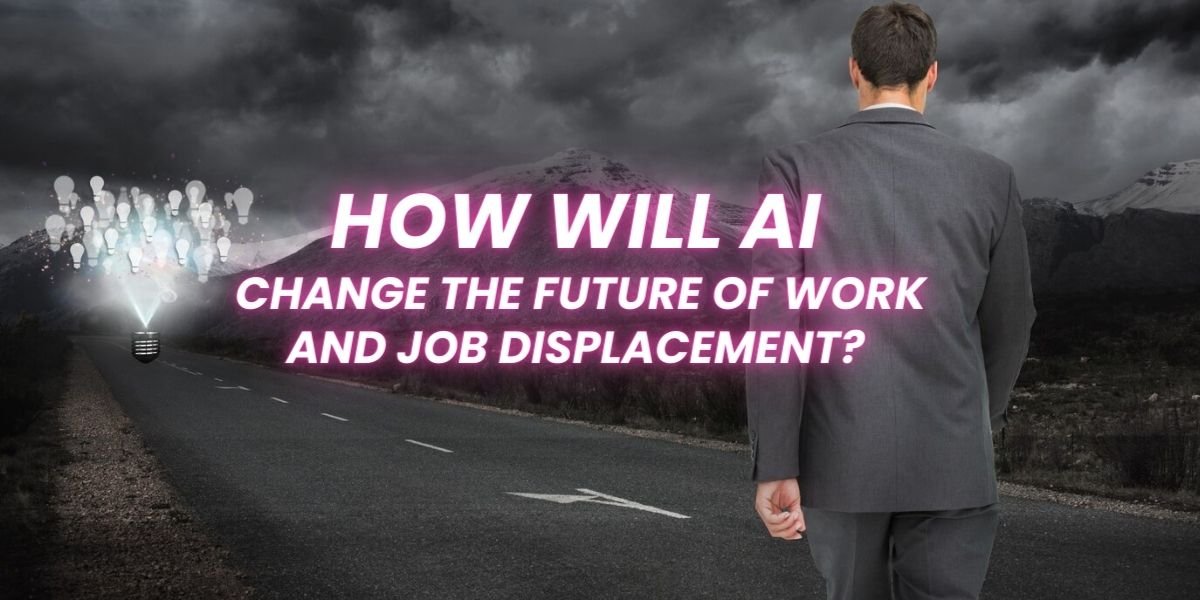The Future of AI in the Military: A Paradigm Shift in Warfare

Artificial intelligence (AI) is rapidly altering industries worldwide. However, in the sphere of military operations, AI is not only changing the game, but completely reshaping the battlefield. The future of AI in the military is set to usher in a fundamental shift in the way conflicts are fought.
Artificial intelligence is penetrating military strategy and capabilities, from improved intelligence gathering to autonomous weapons systems. Consider AI systems that can analyze massive datasets and uncover enemy vulnerabilities faster than a human analyst could. Consider drones with powerful AI that perform surveillance missions with unwavering precision. Consider combat decision-making enhanced by AI-powered systems that can forecast outcomes and offer the best courses of action.
The potential benefits are exciting: speedier danger detection, lower risks to soldiers’ lives, and more efficient military operations. Of course, the future of AI in the military involves complicated ethical considerations, which must be carefully considered and discussed internationally as this revolutionary technology develops.
Let’s look at this paradigm change, how AI is altering military capabilities, and the issues we face as machines become more immersed in battle.
AI-Driven Intelligence and Surveillance
AI is changing the way the military gathers and evaluates information. Large datasets from satellite photos, intercepted communications, and social media are transformed into usable intelligence thanks to AI’s pattern detection and analysis capabilities. Enemy locations, troop movements, and possible threats are revealed far faster than traditional methods, giving commanders a significant advantage.
Artificial intelligence powers drone technology. Airborne and underwater vehicles serve as relentless eyes, sending real-time data back to AI systems. These systems aid in the identification of targets, infrastructure, and trends that are essential for battlefield awareness. This improved situational awareness isn’t just about the present; AI’s predictive powers may help commanders anticipate future adversary activities, allowing them to prepare proactively rather than reactively.
The Future: Beyond Our Current Vision.
The future of military AI is expected to include much more sophisticated uses. Consider swarms of autonomous drones using AI to communicate and cooperate, overcoming defenses or saturating surveillance zones. AI will be a vital instrument in information warfare, capable of extracting useful intelligence from the immensity of the digital world. This steady flow of improved information and AI-powered insights has the potential to dramatically revolutionize military strategy, resulting in concepts and tactics that we are only now beginning to understand.
While encouraging, this evolution calls for transparency and ethical principles. The balance between capability and responsibility will be critical in leveraging AI’s capabilities for security while preserving the values we defend.


Autonomous Weapons Systems
Autonomous Weapons Systems, or “killer robots,” are one of the most contentious and possibly disruptive applications of AI in the military. These systems, which are meant to choose and engage targets with various degrees of human control, pose fundamental questions about the role of machines in warfare.
Proponents of autonomous systems emphasize their potential for increased precision, fewer civilian casualties, and lower hazards to soldiers’ lives. They contend that AI-powered targeting could be faster and more precise than human decision-making in the heat of battle.
Opponents argue that handing life-or-death decisions to machines violates a fundamental moral principle. They are concerned that AI lacks the judgment and empathy required to follow wartime regulations and distinguish between fighters and civilians. Furthermore, there is fear that autonomous systems may decrease the threshold for conflict and disrupt established power dynamics.
The future of AI in the military is closely related to how ethical problems around autonomous weapons are addressed. International treaties, strong ethical rules, and stringent accountability systems are required to keep this potentially transformative technology under meaningful human control. Failure to do so risks a future in which machines, rather than humans, determine the outcome of war.
AI-Enhanced Decision Making
The complicated and frequently changing nature of modern combat necessitates quick, well-informed judgments under extreme duress. Artificial intelligence is poised to alter military decision-making in the following ways:
- Situational Awareness: AI systems work relentlessly through vast datasets compiled from sensors, intelligence reports, and historical records. This gives leaders a real-time, full picture of the battlefield, something no human could achieve alone.
- Course of Action Analysis: AI can simulate thousands of scenarios, taking into account topography, adversary capabilities, weather, and available resources, to anticipate the consequences of various tactics. Commanders obtain essential knowledge about the potential dangers and benefits of each option.
Adaptive Learning: AI does not make decisions based on strict rules. It learns and adjusts when fresh information is provided. This enables for more adaptable responses to unexpected events and shifting opposing strategies.
The future of AI in the military
While AI-powered decision-support systems get more advanced, complete autonomy in key decisions remains a distant and ethically difficult goal. The future of AI in the military is more likely to be a human-machine collaboration. AI will excel at evaluating raw data, but human judgment is still required for deciphering nuances, weighing ethical implications, and finally making complicated decisions. This cooperation strategy aims to leverage both parties’ strengths, resulting in faster, better informed, and ultimately more successful military strategies.


Cybersecurity, Resilience, and the Future of AI in the Military
The digital sphere has evolved into an extension of the modern battlefield. As cyberattacks become more sophisticated, artificial intelligence (AI) will play an increasingly important role in protecting military networks and key infrastructure. AI’s future in the military is dependent on its ability to improve cybersecurity and resilience in the face of persistent digital attacks.
AI excels at spotting tiny network problems that humans typically overlook. Advanced machine learning algorithms sift through massive amounts of data, identifying patterns and behaviors indicative of criminal activity. These technologies can function as constant digital sentries, notifying security personnel and triggering automated countermeasures far faster than traditional defense approaches.
But AI’s importance extends beyond simple detection. AI tools use predictive analytics to forecast probable attack vectors, allowing for proactive system hardening before vulnerabilities are exploited. Furthermore, AI-powered simulations can evaluate reaction protocols, stress digital defenses, and train troops for complex cyber warfare situations.
In the military, resilience is critical. AI can improve resilience by automatically recognizing and isolating infected systems, preventing breaches from spreading. It can even enable self-healing networks, which adapt and recover after an attack.
As the military’s use of AI evolves, the integration of AI into cybersecurity will become increasingly important. It will enable the military to keep ahead of evolving threats, protect sensitive information, ensure mission readiness, and shape the future cybersecurity landscape.
Logistics and Predictive Maintenance: An AI-Powered Transformation
Military logistics, the complex dance of supplies, manpower, and equipment, has always played a critical role in victory or loss. The future of AI in the military promises to transform the field, bringing tremendous efficiency and resilience.
AI’s ability to evaluate large datasets is ideal for the logistical maze. Demand forecasting systems, which use historical data, weather patterns, and real-time battlefield updates, can estimate what supplies will be required, where, and when. With this foresight, AI-powered systems may streamline supply chains, optimize transportation routes, and ensure that front-line forces always have what they require.
Predictive maintenance is another game changer. Sensors aboard vehicles, aircraft, and weapons provide data to AI models. These models detect tiny irregularities that indicate an impending breakdown. Maintenance staff can address problems ahead of time rather than making reactive repairs after they fail. This reduces equipment downtime, improves operational preparedness, and saves lives because troops are less likely to encounter defective gear in the heat of combat.
These AI-driven efficiencies transfer directly into military advantages. With supplies and maintenance reduced, personnel may concentrate on their primary task. As AI advances, these systems offer more precision and integration throughout the military’s logistical backbone, resulting in a force that is leaner, faster, and more adaptive than ever before.
The Ethical Questions
The use of AI in the military involves serious ethical concerns, with possibly far-reaching ramifications. Here are some of the fundamental dilemmas:
- Accountability: As AI systems make combat decisions, who is responsible for blunders or unexpected collateral damage? Can a machine be held accountable in the same way that a human soldier can?
- Algorithmic Bias: AI systems learn from data, which may include intrinsic biases. How do we prevent AI-powered weapons systems from repeating discriminatory societal biases, which influence targeting and engagement decisions?
- Dehumanization of Warfare: Could the employment of autonomous weapons systems that take life-or-death decisions without direct human control reduce the value placed on human life in a conflict?
Reduced Transparency: The complexity of advanced AI algorithms can make it harder to understand why a machine made a particular conclusion. This makes it difficult to determine accountability and ensure the legitimate and explainable use of force.
The future of AI in the military will surely be dependent on finding appropriate solutions to these problems. International treaties, stringent ethical rules, and ongoing disclosure are critical for reducing the threats posed by these powerful technologies. Technical breakthroughs mustn’t exceed our ability to understand their ramifications, ensuring that AI serves humans rather than the other way around.
The Future Landscape
The potential of AI in the military appears limitless. We predict an increase in intelligent swarming technology, where coordinated groups of autonomous drones or robots overwhelm adversaries. AI holds the key to unleashing the full potential of hypersonic weaponry, which promises increased speed and precision. Furthermore, AI is expected to transform the very essence of military plans, enabling techniques that defy conventional human restrictions.
The seamless integration of AI into command and control systems raises the prospect of a genuinely cognitive battlefield. Consider human commanders and AI-powered advisors cooperating in real time, synthesizing data from multiple sources, and organizing reactions quicker than enemies can react. AI is expected to find its way into the development of adaptive camouflage, self-healing vehicles, and even synthetic warriors.
While using the potential of AI promises enormous tactical benefits, understanding the ethical issues inherent in its application will be critical. Only by taking a balanced and prudent approach to the future of AI in the military can we reduce its hazards while maximizing its promise as a force for security and stability.
F&Qs
- Enhanced Intelligence and Surveillance: AI can quickly process enormous amounts of data, uncovering crucial insights and patterns.
- Improved Decision-Making: AI helps military commanders make informed decisions during complex and fast-paced scenarios.
- Increased Precision and Efficiency: AI can improve the accuracy of targeting, boost logistical efficiency, and reduce human error.
- Reduced Risk to Soldiers: Autonomous systems could take on dangerous missions, potentially decreasing casualties.
- Accountability: Who is responsible when an autonomous weapon system makes a mistake?
- Dehumanization of Warfare: The possibility of machines making life-and-death decisions raises significant moral concerns.
- Potential for Unintended Consequences: The complexity of AI systems could lead to unpredictable or undesirable outcomes on the battlefield.
- International Regulations: Global agreements and treaties are needed to establish clear guidelines on the development and use of autonomous weapons systems.
- Human Oversight: Keeping humans in the loop as decision-makers is essential to ensure accountability.
- Transparency and Rigorous Testing: Openness and thorough testing of AI systems are crucial for building trust and minimizing risks.
- Data quality: AI relies on accurate and unbiased data for reliable decision-making.
- Explainability: Understanding the reasoning behind AI recommendations (“black box” problem) is crucial for trust.
- Security: AI itself can become a target for cyberattacks, demanding robust protection.
- Regulation: Clear ethical frameworks and international agreements are needed to govern AI’s use in war.















Pingback: The Future of AI in Entertainment and Media: Get Ready for the Revolution - Meepri
Pingback: The Hype vs. Reality: 10 Reasons Why AI Is Not a Threat to Humans. - Meepri
Pingback: Killer Robots: The Rise of Autonomous Weapons and the Debate to Ban Them - Meepri